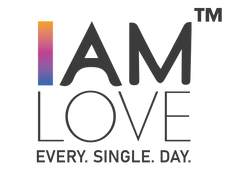
Researchers say 55% of adults are deficient in vitamin D! Are you?
In India, more than 1 million adults suffer from vitamin D deficiency-related diseases every year. If you are experiencing frequent muscle cramps and muscle pain or you have pain in your bones then these may be the signs of Vitamin D deficiency. Its deficiency also comes with symptoms like depression and fatigue. Conditions like Osteoporosis, Osteomalacia, Rickets and frequent fractures are common in people who have severe deficiency of this nutrient.
Habits that cause Vitamin D deficiency
If you are someone who doesn’t get a minimum of 10 minutes of sunshine every day then your body isn’t synthesising enough vitamin D for your daily needs. Most fruits and vegetables lack this nutrient but some fortified cereals like oatmeal and some legumes like soybean contain a significant amount of Vitamin D. If you are looking for a vegetarian-based vitamin D source then mushrooms and dairy products are great options. Vitamin D mainly comes from animal-sourced foods like eggs, liver and fatty fish.
Four anecdotes on Vitamin D
- Vitamin D is fat-soluble – There are water-soluble vitamins like Vitamin C and then there are vitamins that are soluble in fats. Water-soluble vitamins come with the downside of being washed away through urine. On the flip side, our body can easily store fat-soluble vitamin D. This is the reason why taking it in a small amount is enough for us. The recommended intake is 600 International Units of Vitamin D every day.
- Skin colour matters in the synthesis of Vitamin D – Light-skinned people come at the risk of developing cancers like melanoma when exposed to extreme sunshine. This is because they lack the pigment melanin that has the function of protecting skin from UV rays. Black-skinned people on the other hand have a good amount of melanin. But melanin comes with its downsides too. As it guards the skin against sunlight so it also slows the synthesis of Vitamin D production.
- Obesity is associated with vitamin D deficiency – We know that Vitamin D is stored in fats cells, but excess fats can affect Vitamin D absorption in the body. The excess fats cells have been shown to isolate vitamin D. This is the reason why obese people need a high amount of vitamin D to meet their daily requirements.
- Infants remain at the risk of vitamin D deficiency – Breast milk contains a small amount of vitamin D. A research paper published in NCBI under the heading - “Vitamin D content in human breast milk: A nine-month follow-up”, concluded that infants received less than one-fifth of their daily Vitamin D requirement. Children getting very less amount of vitamin D remain at a high risk of rickets. Parents are advised to supplement Vitamin D with external sources.
Vitamin D deficiency can be diagnosed by blood tests. The most common form of the test includes the observation of the concentration of 25(OH)D in the blood sample. You must visit your physician for this.
What do experts say?
Some nations like the USA have mandated the intake of 1 - 2.5 mcg/100kcal that equals about 40 – 100 International Units in infants. Canada on the other hand has fixed the intake at 40 – 80 IU. Healthcare professionals in India are quite vigilant about the matter as the Indian diet is primarily vegetarian. Experts at an India based leading nutraceutical brand - I am love, suggest the daily consumption of at least 800 IU of Vitamin D to adults. They say that – vitamin D or calciferol is important for the absorption of calcium so a bare minimum amount should be included in your diet. If that’s not the option then 30 minutes to 45 minutes of sunbathing can compensate for the daily requirement of Vitamin D. People can also try different supplements available in the market that can increase their vitamin D consumption.

